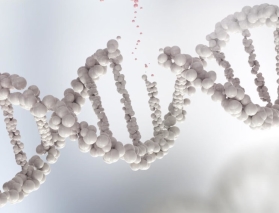
The University of Hawaii Cancer Center has published novel research on the BAP1 genetic mutation found in an
estimated 10% of patients with mesothelioma with the goal of better understanding
the unique traits of carriers of the mutation.
Michele Carbone, Director of Thoracic Oncology and lead author of the
study published in the
Journal of Thoracic Oncology, and his team found that the BAP1 genetic mutation warrants a more personalized
methodology focused on preventative care, early detection and different
therapeutic approaches compared to mesothelioma not linked to genetic
mutations.
According to the study, “Detecting BAP1 germline mutations has, therefore,
significant medical, social and economic impact. Close monitoring of these
patients and their relatives is expected to result in prolonged life expectancy,
improved quality of life and is also cost-effective.”